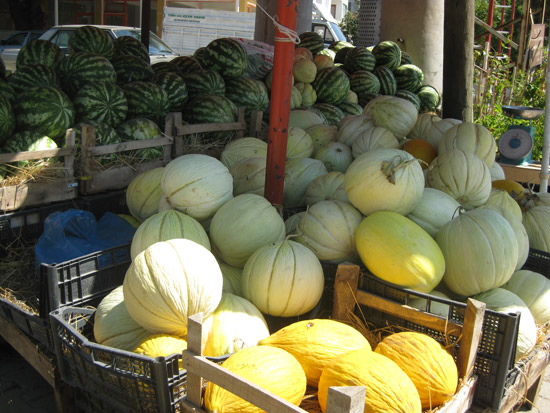Where to Go when Greece Says No: Turkey
That evening a man walked into my bush camp with a gun, marched straight at me as I gaped in shock and sprawled out beside me on my tarp
/https://tf-cmsv2-smithsonianmag-media.s3.amazonaws.com/filer/20110923024008selimiye-mosque-edirne-thumb.jpg)
The Greeks wouldn’t have me. The two men at the border checkpoint just west of Zlatograd took one look at my passport and pointed me right back into Bulgaria. The problem, near as I could understand, was that the Zlatograd customs office had run out of ink for stamping visas. This was ridiculous, but they insisted that only E.U. citizens could currently use this port between Greece and Bulgaria; I would need to go northeastward to Svilengrad, where Bulgaria touches both Greece and Turkey. Here, the men promised, I would be welcomed with state-of-the-art visa-stamping gear.
“How far to Svilengrad?” I asked. The one who answered winced as he did: “Two-hundred kilometers.”
I went northeast across a landscape that transformed quickly from the green and abundant Rhodope Mountains into a sad, dusty plain with lonely villages where men sipped espresso from disposable cups and watched plastic bags bound past like tumbleweeds. There were no thriving plazas or vast heaps of watermelons, no hotels, no beautiful forests, no icy fountains, no tourists. Flies harried me every time I stopped, and the only relief came by continuously moving. I blasted through the drab desert city of Kardzhali and past Perperikon and Monek fortresses and finally slept in an almond grove on a hilltop.
The agents at the Svilengrad border booth had first-rate, no-nonsense stamping equipment and plenty of ink.
“Hey, your colleagues in Zlatograd could use a liter of that black stuff,” I might have joked if I’d known how.
A 90-day, multiple-entry tourist visa for Turkey runs $20—about 35 Turkish Lira—and with a quick passport inspection and a thump of the stamp, you’re in. From Bulgaria into Turkey, the brown, weary landscape continues unabated—but lo! What’s this ahead? Gilded Oz-like spires spear the sky above the clutter and activity of a large city emerging in the dusty haze. Edirne!
In this beautiful old town, the huge Selimiye Mosque is the premiere sight to stare at, with its great central dome cornered by four sky-high spires. It’s behind the Old Mosque, however—humble, worn, faded, outperformed in almost every way—that I find a huge fig tree in the garden adjacent to the plaza. The large black fruits are exceptional, and just a quick tussle with the branches can produce enough for dinner.

Melons come in heaps in Turkey.
But nothing brings refreshment when one is thirsty, famished and sweltering like a watermelon. In the heat of the next afternoon, I collapsed half dead under a tree, pulled out knife and spoon and put away a ten-pounder, clean down to the white rind. I lay inert and immobilized for 25 minutes as my body absorbed the sugar and juices. It worked like gummi bear juice: I bounced back onto the asphalt and devoured 30 more miles of highway before meeting a pair of westbound South Korean cyclists sitting under the only tree for a mile around. I pulled over and joined them. One, a journalist named Moon, told me he’s been working his way around the globe by bike for five years. He sleeps for free any way he can and sends home travel stories from his laptop to pay his meager bills, though he has had some substantial monetary setbacks; in Latin America he was robbed five times, and he is now on his third bicycle.
That evening as I ate a fruit salad with white cheese, a man walked into my bush camp with a gun, marched straight at me as I gaped in shock and sprawled out beside me on my tarp. He set the shotgun between us and said, “Don’t mind me,” like some absurd character in a sitcom. He waved the back of his hand as he looked over my possessions. “Eat your dinner. Read your book.” He seemed to be missing a few screws, and there was something unnervingly absent-minded about him: He grabbed my water bottle and shook it, flipped through my journal, tried to read my postcards, wrote me his address so I could send him one (“Sure, thing, pal”), squeezed the front tire of my bike. Then, he pulled a huge slug from his pocket and loaded his gun. I bolted upright in alarm—but without a word or a glance, the man stood and walked into the darkness. Gunshots echoed all night in the hills until a distant prayer call announced it was morning.
I moved promptly. Next stop: Istanbul, 110 miles away.
/https://tf-cmsv2-smithsonianmag-media.s3.amazonaws.com/accounts/headshot/Off-Road-alastair-bland-240.jpg)
/https://tf-cmsv2-smithsonianmag-media.s3.amazonaws.com/accounts/headshot/Off-Road-alastair-bland-240.jpg)